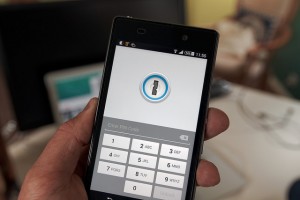Picking the right security system for you business or your home can be difficult. There are so many different options from brands to levels of protection that a system offers, and it can be hard to figure out which security system will be right for you. So what kind of things should you ask when deciding on a system? Here are a few:
- What is it that I want to protect?
- What level of security will I need for what I am trying to protect?
- Will just an alarm system suffice? Or do I want to have a camera system as well?
- How much do I want to spend on a security system?
- How many people will need to have access to the system?
These are just some of the things that you will want to consider when looking into a security system. Another thing to look for when installing a system is a company that offers the things you are looking for. Perfect Connections, Inc. provides many different types of systems and can help you answer these questions to decide what system would be best for you! So, if you live or run a business in Central or Northern New Jersey and would like to find out more about what system would be right for you, please call 800-369-3962 or simply CLICK HERE.
Image from CheckPoint Security
 Our world is constantly changing and evolving. Progression is an inevitable force that influences the way we live our daily lives. This is especially true of advancements made in the techy devices we interact with on a daily basis. Everything from our smartphones to our security systems. It’s the manner in how we interact with all of these devices that is driving innovation and product design. The internet and networking of devices is creating a connected environment that offers ultimate convenience and changes how we perceive the potential of security systems.
Our world is constantly changing and evolving. Progression is an inevitable force that influences the way we live our daily lives. This is especially true of advancements made in the techy devices we interact with on a daily basis. Everything from our smartphones to our security systems. It’s the manner in how we interact with all of these devices that is driving innovation and product design. The internet and networking of devices is creating a connected environment that offers ultimate convenience and changes how we perceive the potential of security systems. Comprehensive security systems are what help maintain a safe and secure work environment or home. As a consumer it is in your best interest to hire a systems integrator with experience, knowledge, and know-how, but how do you tell the good from the “just okay” or bad? Any company can spout off how many years experience they have or jobs they’ve completed, that doesn’t really give you much insight into how they operate and solve problems.
Comprehensive security systems are what help maintain a safe and secure work environment or home. As a consumer it is in your best interest to hire a systems integrator with experience, knowledge, and know-how, but how do you tell the good from the “just okay” or bad? Any company can spout off how many years experience they have or jobs they’ve completed, that doesn’t really give you much insight into how they operate and solve problems. Assisted living facilities are dynamic environments. You have occupants with varying levels of medical needs alongside administrative, medical, and visiting personnel. It’s a somewhat complex security issue because residents and staff need to be able to move throughout the facility freely, but unauthorized entrants must somehow be kept out. The mental health and acuity of residents can also be a cause for concern. In an aging population medical conditions like dementia and Alzheimer’s can cause residents to wander off or get lost which is a major concern for staff and resident relatives. Thankfully by implementing security system solutions many of these concerns can be addressed.
Assisted living facilities are dynamic environments. You have occupants with varying levels of medical needs alongside administrative, medical, and visiting personnel. It’s a somewhat complex security issue because residents and staff need to be able to move throughout the facility freely, but unauthorized entrants must somehow be kept out. The mental health and acuity of residents can also be a cause for concern. In an aging population medical conditions like dementia and Alzheimer’s can cause residents to wander off or get lost which is a major concern for staff and resident relatives. Thankfully by implementing security system solutions many of these concerns can be addressed. We use our smartphones and other mobile devices for many functions in our daily lives. It’s almost impossible to go through an entire day without seeing someone tapping, scrolling, or swiping through their phone, never mind using your own phone. We’ve created a mobile environment where convenience lies in the palm of our hands.
We use our smartphones and other mobile devices for many functions in our daily lives. It’s almost impossible to go through an entire day without seeing someone tapping, scrolling, or swiping through their phone, never mind using your own phone. We’ve created a mobile environment where convenience lies in the palm of our hands. Healthcare facilities pose a unique security situation. By nature they hold a lot of risk other organizations don’t necessarily have to deal with. Most healthcare facilities are open to the public and provide care for a vast array of people on a daily basis. Many facilities also house expensive and often sought after narcotics or medications. Also, recent changes to healthcare policies are having an effect on everyday operations and their implications may not be fully realized yet. These factors combined with the unpredictability of patient and public behavior make healthcare facilities particularly sensitive environments that require special attention when it comes to security.
Healthcare facilities pose a unique security situation. By nature they hold a lot of risk other organizations don’t necessarily have to deal with. Most healthcare facilities are open to the public and provide care for a vast array of people on a daily basis. Many facilities also house expensive and often sought after narcotics or medications. Also, recent changes to healthcare policies are having an effect on everyday operations and their implications may not be fully realized yet. These factors combined with the unpredictability of patient and public behavior make healthcare facilities particularly sensitive environments that require special attention when it comes to security. The technological climate is swiftly changing the way we connect and interact with the physical world. Endless runs of cable and spaghetti wiring is becoming an antiquated notion with the development of wireless internet based equipment. This is evident in the way some security system integrators are approaching system design and installation. As industry professionals, our team at
The technological climate is swiftly changing the way we connect and interact with the physical world. Endless runs of cable and spaghetti wiring is becoming an antiquated notion with the development of wireless internet based equipment. This is evident in the way some security system integrators are approaching system design and installation. As industry professionals, our team at  What is access control? In the simplest of terms it can be explained as a means to allow or deny entry to or exit from a designated space. Think of the kinds you likely use on a daily basis, a key to lock or unlock your front door or an electronic gate that lets you into the parking garage at work. But what does it mean, what are the options when it comes to business integration and security systems, and why might your facility need it? As licensed security systems providers our team at
What is access control? In the simplest of terms it can be explained as a means to allow or deny entry to or exit from a designated space. Think of the kinds you likely use on a daily basis, a key to lock or unlock your front door or an electronic gate that lets you into the parking garage at work. But what does it mean, what are the options when it comes to business integration and security systems, and why might your facility need it? As licensed security systems providers our team at  When it comes to security challenges in healthcare facilities EDs (Emergency Departments) are truly unique. There’s a diversity in not only the people that come in and out, but the services provided as well. Never mind the fact that EDs are open 24/7 and can’t deny treatment to anyone. This leads to a complicated dynamic that poses security risks to staff, patients, and guests. As a leading security systems provider in northern and central New Jersey, our team at
When it comes to security challenges in healthcare facilities EDs (Emergency Departments) are truly unique. There’s a diversity in not only the people that come in and out, but the services provided as well. Never mind the fact that EDs are open 24/7 and can’t deny treatment to anyone. This leads to a complicated dynamic that poses security risks to staff, patients, and guests. As a leading security systems provider in northern and central New Jersey, our team at 
 ationwide report from the
ationwide report from the 
